DePauw alumni create their own narratives by telling others’ stories
It could be that no one who has witnessed Adrienne Westenfeld’s lifelong love of reading and writing would be surprised that the 2015 DePauw graduate is an assistant editor at Esquire magazine.
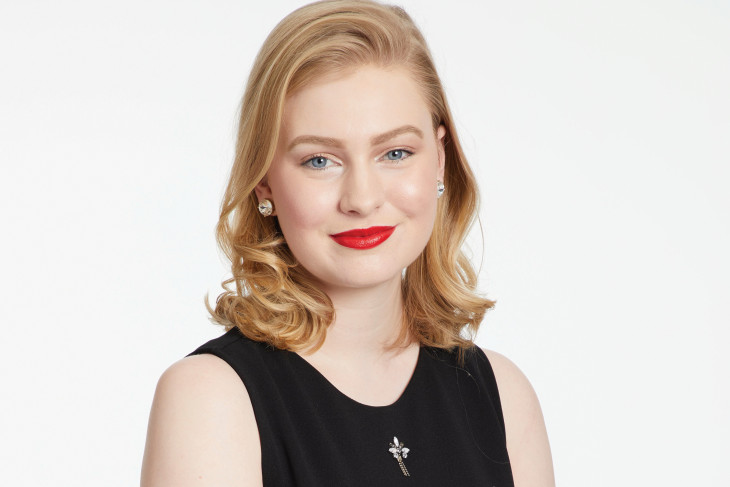
Not her DePauw adviser, English professor and acclaimed novelist Chris White. Westenfeld’s rapid ascent, “though extremely impressive, didn't surprise me,” she says. Even in Westenfeld’s first semester at DePauw, “the sophistication of her writing, as well as her work ethic, was extraordinary. …
“Her future is limitless. I could easily see Adrienne as an accomplished creative nonfiction book writer or novelist.”
Westenfeld is one of DePauw’s storytellers, an eclectic array of alumni whose diverse careers enable them to tell others’ stories.
Westenfeld majored in creative writing at DePauw and participated in the Media Fellows Program, which “gave me the journalism training I needed to succeed here,” she says. “But also I wouldn’t have the facility with excerpted fiction if not for my creative writing major.” DePauw’s liberal arts curriculum “trains you to think widely and critically about everything” in a way “that helps every day of your life.”
When it came time for her semester-long internship, a hallmark of the fellows’ program, Westenfeld set her sights on New York City. “It felt like the one place I could do the caliber of the work I wanted to do,” she says. And while she freelanced for local newspapers during her DePauw years, she targeted a career in magazines, causing her to win an internship with Town and Country magazine, located in the 46-story Hearst Tower in Midtown Manhattan.
That led to a full-time job as assistant to editor Jay Fielden, who nine months later took her with him when he became editor of Town and Country’s sister – and considerably more prestigious – publication Esquire. Westenfeld, who since has been promoted, writes stories and works with fiction writers to publish their work.
“The most intimidating interviews I do are with authors I very much admire,” she says. “But it’s not because they’re scary. It’s because I want my questions to honor what they’ve created and be up to snuff. I want the questions to be thoughtful and not something they’ve heard 20 times.”
She says she is lucky to work on stories of magnitude. Luck may or may not have anything to do with it, but one thing is clear: Westenfeld has been intentional about each step of her path.
She “made it my mission” upon arriving in New York to meet up with other media fellows who live there, several of whom have been mentors, she says. “I like to meet with the current interns now and try to pay that forward.”
On such occasions, she is blunt about what it takes to succeed. “I often see college students who act like college is practice. And I don’t think it’s practice,” she says. “I think the second you get to college at 18, it’s the start of your career. As scary as that sounds, the things you do matter; the things you do are on the internet and they last. Take it seriously. Meet with everyone you can meet with. Take the stories you write seriously.”
Taking a leap
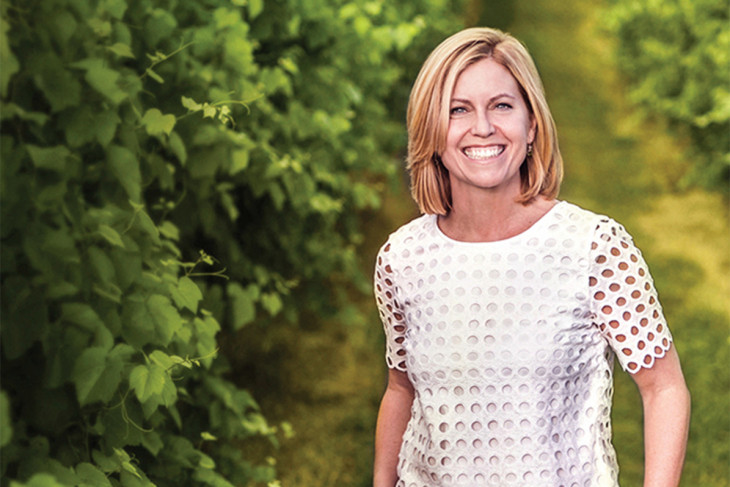
It was Catherine “Cat” Neville’s first day as an editor at Washington University School of Medicine, and her new boss asked her to create a website.
She didn’t know how. And this was in 1995, shortly after Neville, who majored in writing and art history, had graduated from DePauw but long before she could pluck a website template off a virtual shelf.
“So I taught myself how to hand code HTML,” she says. “In that process of teaching myself that skill and exploring what I could do with that, that’s when I started to really get the bug to create and to push myself in new directions and to explore what I was capable of. …
“Having the kind of education that you get at DePauw, it gives you that ability to explore because you have that really firm foundation.”
Within a few years and while still working full time, she and a business partner launched “Sauce,” an online magazine about the St. Louis food scene, and Neville was creating websites for St. Louis restaurants. By 1999, “I was working constantly,” she says, and she knew she had to choose between the safety of her job and the risk of entrepreneurship.
“If I don’t try,” she remembers thinking, “I’ll never know what I was capable of and I’ll look back and I’ll regret not taking the chance. And so I did.”
They took “Sauce” into print in 2001, but after a 10-year business relationship, their divergent visions prompted Neville to sell her half of the business to the partner. Later that year, Neville launched “Feast” magazine, a regional food-oriented publication. Next came Feast TV, which airs on PBS stations in Missouri and Southern Illinois and has won five regional Emmy awards in its six seasons.
About four years ago, Jack Galmiche, Neville’s boss at Nine Network of Public Media, encouraged her to create a national show.
“She is an extraordinary talent both in front of and behind the camera,” he says, “meaning that she has the ability to know the subject, understand the subject, bring out the best understanding of that subject with her guests and then go in front of the camera and be able to host.”
Neville, however, demurred. When he raised the issue again about two years ago, she realized she ought to pay attention.
She “spent a long rainy weekend just examining, all right, if I were to create a food television program for a national audience, what would that be? Based on my history, based on what kind of good TV is already out there, what can I add to the dialogue? … That’s when I zeroed in on the idea of focusing on makers.”
Neville filmed a pilot program and American Public Television agreed to distribute “tasteMAKERS” to PBS stations nationwide, prompting her to begin work last January on a 13-episode season. She was told that about half of the 350 stations across the country might agree to air it, but nearly 300 – 85 percent of the affiliates – have said they will do so.
The show features makers, farmers and chefs who create unusual products such as artisan charcuterie and breads; fresh snails and snail caviar; sustainably farmed mussels, oysters and clams; citrus-infused sour beers; and small-batch oils from nuts and seeds. It began airing in several markets in October.
“What I’m looking for are people who are creating products that are personal and that have deeper connections in the communities,” she says. “... That’s where the storytelling is for me – in those threads where you can create connections and show impact.”
Navigating the extremes
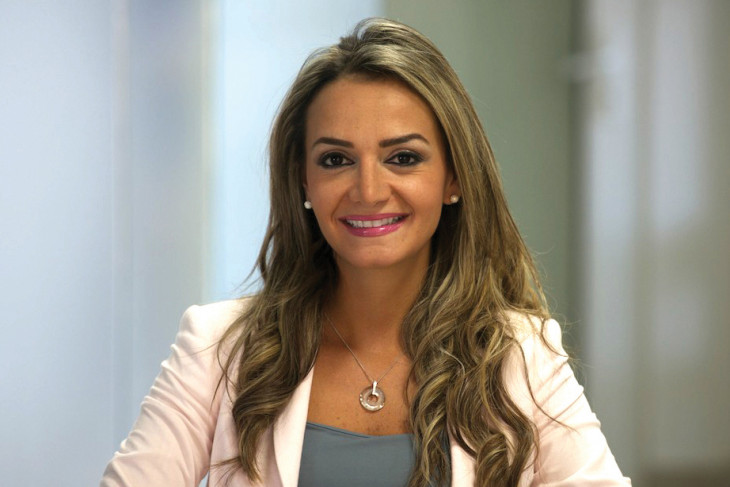
Nisreen El-Shamayleh ’04 has spent almost three years in the opulent world of Queen Rania of Jordan, for whom she manages international media and communications.
But for seven years before that, El-Shamayleh was enveloped in the “frightening and morbid” world of news reporting from war zones and refugee encampments. As a correspondent for Al Jazeera, a state-funded broadcasting company based in Qatar, she covered three Gaza wars; the Arab Spring protests in Tunisia and Jordan; an Israeli election; the Syrian war and the resulting refugee crisis in Jordan, Lebanon and Turkey; and violence in Israel and the Palestinian territories.
El-Shamayleh prepared to navigate those extremes as a communications major and media fellow at DePauw, 6,000 miles from her native Jordan. She had wanted to study journalism in a U.S. school and listened when a DePauw student from Jordan recommended it. A generous financial aid package and the Media Fellows Program sealed the deal.
In her junior year, El-Shamayleh secured a semester-long internship at MSNBC’s “Hardball with Chris Matthews,” where “I realized I definitely wanted to work in news and start my career in Washington D.C.,” she says via email. “My international background helped me too, but it was at DePauw that I was able to zero in on my career goals and be focused in my approach.”
She headed to D.C. immediately after graduation and four days later landed a job as a freelance producer for Abu Dhabi Television. She worked there a year before returning to Jordan, where she found a job as a foreign affairs reporter for Al Ghad Arabic daily newspaper.
Soon she started a two-year stretch as a reporter for a pilot Arabic TV channel, but the channel failed to launch. So she briefly worked at a Saudi English-language channel before landing “my dream job” with Al Jazeera.
“That’s when I can say my real career in journalism began,” she says.
El-Shamayleh says that she had always wanted to be a news anchor, “but that changed as soon as I started working in the field as a correspondent. I realized that, even if the news anchor is making the higher salary, I’m the one getting the information, telling the story and feeling what the people on the ground are feeling. … Looking back, that was both dangerous and priceless, I think, because so much of the depth, maturity and knowledge I gained as a person came from where I was standing in the field.”
Her tenure with Al Jazeera was “life-changing,” she says, “exposing me to the most important and meaningful events in my part of the world.” By late 2015, however, she opted to leave reporting. “Life is too short, after all, and I didn’t want to spend it exhausted all the time and missing out on important moments with family and away from the people I love,” she says.
“I still work in media, just in a different role. In the last few years, I have learned that the skills you acquire through working in media and journalism are so versatile and adaptable. They can open up so many career opportunities. … I am so honored to be working for someone as inspiring as Her Majesty, who lends her voice to so many causes around the world that I also happen to care about.”
Following his passion
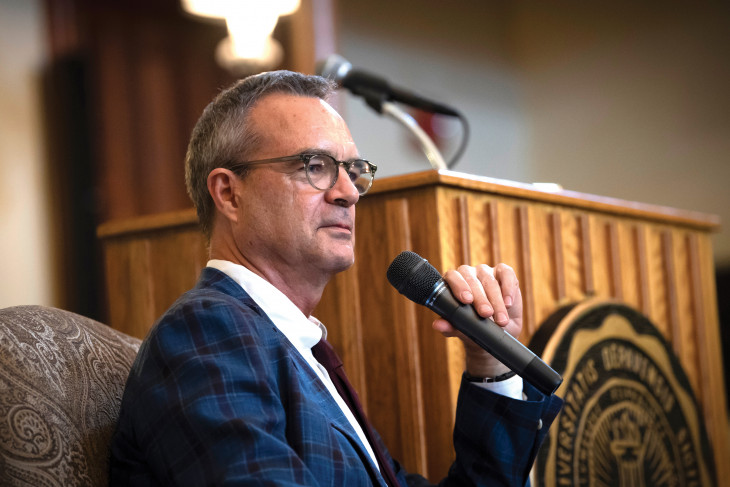
James Stewart remembers that, as a high school student, he wanted to be secretary of state. So he majored in political science at DePauw, aiming for admission to a good law school and future work in international relations.
The 1973 graduate got into that good law school – Harvard – and upon graduation went to work for Cravath, Swaine & Moore, a white-shoe law firm in Manhattan. Three years in, he made “the most critical career decision I ever made” and followed a passion he had since he worked at The DePauw, the university’s student newspaper: He accepted an offer to become executive editor of his friend Steven Brill’s new American Lawyer magazine.
Stewart says The DePauw taught him that, “you’re not just simply recording events. As a journalist, you’re shaping events as well.” He had not previously pursued a journalism career because “I thought it more as an extracurricular activity, not a job or career path.”
By the time he left the law firm, he says, “I had seen in the rest of the world, yes, there is a career in journalism” – and, in Stewart’s case, an illustrious one. He worked at the Wall Street Journal for nine years, four as front page editor, and won the Pulitzer Prize for explanatory journalism in 1988. He has been a staff writer for The New Yorker; has written a weekly column for the New York Times since 2011; and has written nine books. He teaches business journalism at Columbia University.
“People say, ‘oh, liberal arts isn’t a professional degree.’ Well, it is if you’re going to be a journalist,” Stewart says. “I mean, I have to plunge into what are often completely new subjects and learn everything I can about them in a very, very short time and be able to analyze material and to look at new developments and put it into some sort of broader context. Well, that’s exactly what I did in course after course after course at DePauw and that’s what trained that muscle in my brain to be able to do that.”
Tossing a dart in the dark
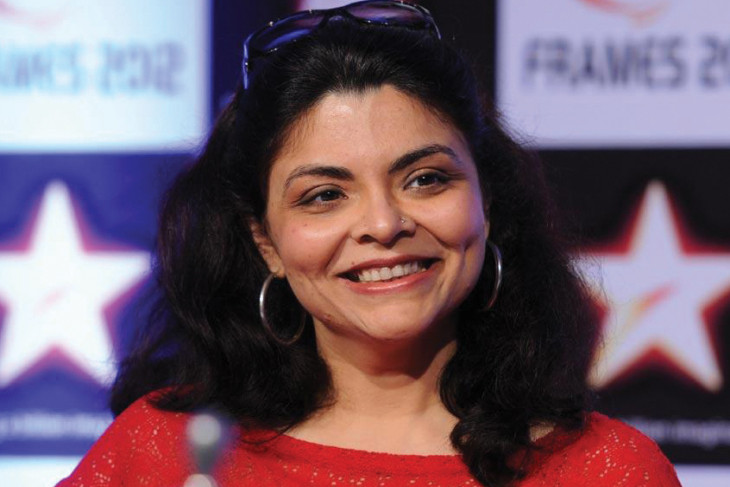
Shibani Bathija had received information in the mail and then was offered a scholarship, so she supposed that attending DePauw University more than 8,000 miles from her home in India would be a good thing to do. But it was, she admits, “sort of a dart in the dark.”
It hit the bull’s-eye.
“Being a small school and being not in the big city with a group of people in the administration and the faculty who are really committed make a huge difference,” the 1990 graduate says. “I know people who went to maybe more renowned schools not in terms of quality but in terms of being talked about and they did not have the focus and the beneficial experiences that I did.”
She studied English composition and marketing communications, thinking that would land her a job. And it did: She started out as an advertising copywriter, then worked in public relations and marketing. In her spare time, she wrote a screenplay, which she showed to a friend who was in the film-making business. That led to a full-time screenwriting job.
As such, she has written scripts for five films produced in Bollywood, the Indian counterpart to Hollywood. After the first two were released in 2006, Outlook India said they “made it to blockbuster grade” and called Bathija “the writer of the moment.” In 2010, “My Name is Khan” – which was reviewed favorably by the New York Times – broke a worldwide record for a Hindi film’s gross receipts on opening weekend. Her latest film, “Kalank,” is due out next April.
Her DePauw years influenced her writing, she says. “Having this sort of introduction to various subjects is like having an introduction to life. I find that in my writing I draw so many different things that I learned. The American education system, the higher education system, specifically the one that we followed at DePauw, encouraged questioning; it encouraged curiosity. And I think those things are so important to what I do today.”
Building it so they will come
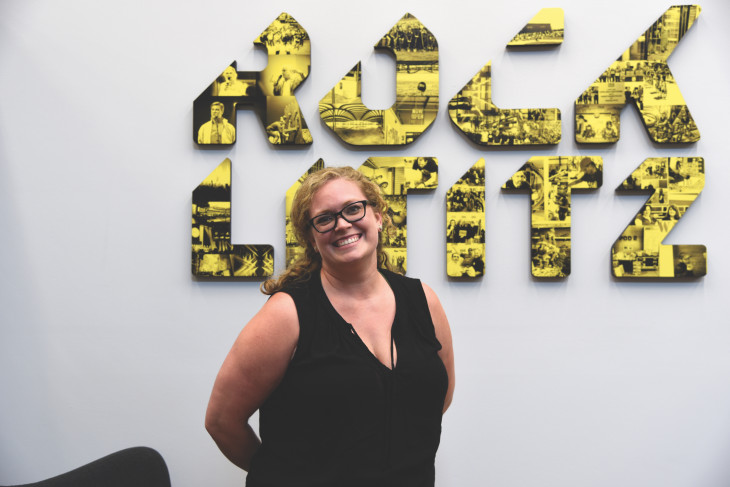
By Steven Timm, professor of communication and theatre
Photo by Marilyn Culler, assistant director, Media Fellows Program
One might mistake the Lancaster County valley in southeastern Pennsylvania for a Grant Wood painting were it not for a black rectangular monolith towering above the soybean and endive fields at the edge of the town of Lititz.
Deep in this massive studio, which is nearly the length of a football field, twice as wide and 10 stories high, Rachel Pfennig Hale ’09 has a front-row view of the biggest acts in live performance, who come to design, build and rehearse their stage performances – their visual and aural storytelling. Hale, a double major in communication and English writing at DePauw, is one of six team members hired to manage Rock Lititz, a collective of 38 vendors.
The philosophy is simple: Assemble the vendors (lights, design, sound, pyrotechnics, sets, projections, etc.) at a giant studio that can accommodate stadium-sized productions and a smaller studio for up-and-coming acts and the talent will come. With a range of services (a 138-room hotel soon will be among them) in the shared venue, problems can be solved immediately and efficiently.
The concept works. A-list performers — the names aren’t made public — are sufficiently pleased that they’ve become repeat customers. As the client and community development manager, Hale focuses on three contingents: rehearsal clients, the collective’s 1,000+ employees and the community of Lititz.
“I run studio hospitality for our rehearsal clients, social media and marketing for all, as well as coordinating the Rock Lititz community events,” such as seminars, training sessions, happy hours and social events, says Hale, nicknamed the mayor of Rock Lititz. Having fun, learning and keeping stress levels low are priorities, and Hale does whatever is needed to keep everybody happy.
After graduation, Hale headed to Los Angeles, where she worked on the production staff for 14 episodes of “Dancing with the Stars.” Black Eyed Peas recruited her for a two-year European tour; she then worked on two Lynyrd Skynyrd tours before landing in Belgium and negotiating a life-partner deal with Matt Hale, her husband and a longtime employee of Tate Towers, one of Rock Lititz’s founding companies. When the two returned to Lititz, Rachel wrote for technical journals and earned two master’s degrees before joining the fledgling Rock Lititz.
She credits independent studies at DePauw for enabling her to “take ownership” of her education and gives special notice to DePauw Theatre and D3TV for providing cocurricular experiences with values, including leadership and creative thinking, echoed in her job.
She loves the work and takes pride in the company’s growth and development and in her ability to meet challenges. “Every day is different,” she says, “and I’m constantly adapting to new situations.”
The new face of storytelling
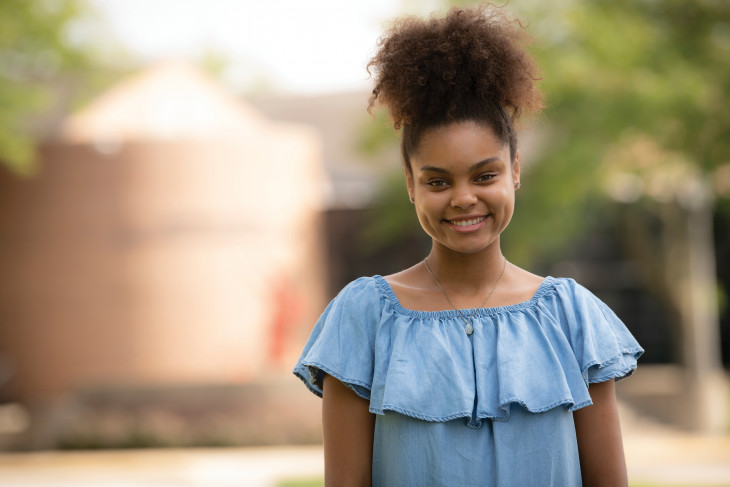
Amelia Mauldin ’22 is a sprinter who writes poetry but her real passion is social justice, especially racial equality and reproductive rights.
And so the first-year media fellow from St. Louis envisions a future as a crusading broadcast journalist.
“I hope to have the opportunity to talk about important issues, tell real stories,” she says. “You hear those stories about journalists being attacked just for doing the work that they do, trying to shed light on certain injustices that may be local or national. That’s actually the work that I would love to do – just being that reporter who is doing investigative work, just finding answers that people deserve to have.”
DePauw Magazine
Fall 2018
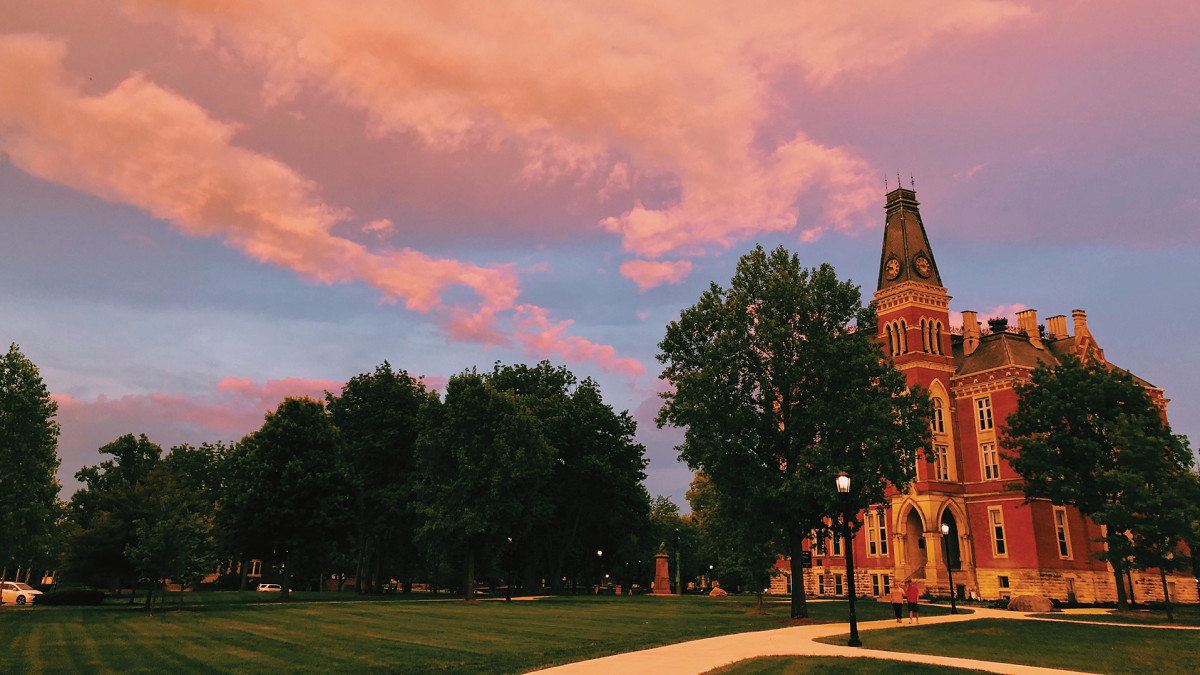 1,000 WORDS’ WORTH
1,000 WORDS’ WORTH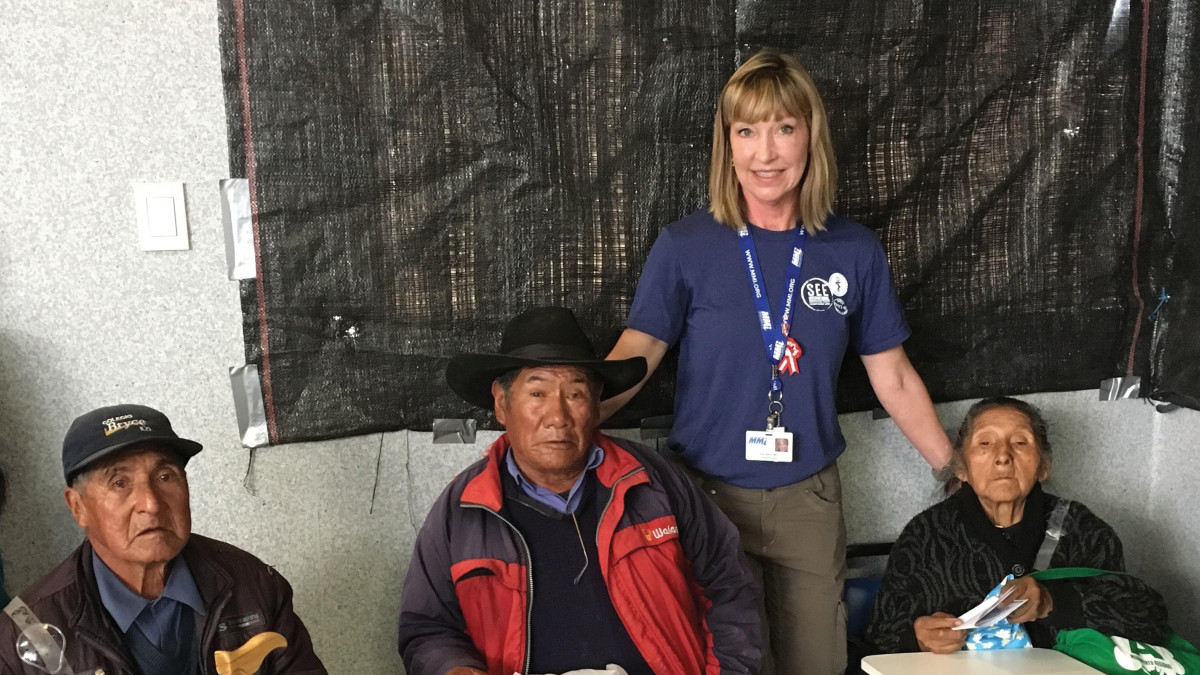 Gifted surgeon gives up lucrative practice to give sight to others
Gifted surgeon gives up lucrative practice to give sight to others First Person with Louis Smogor
First Person with Louis Smogor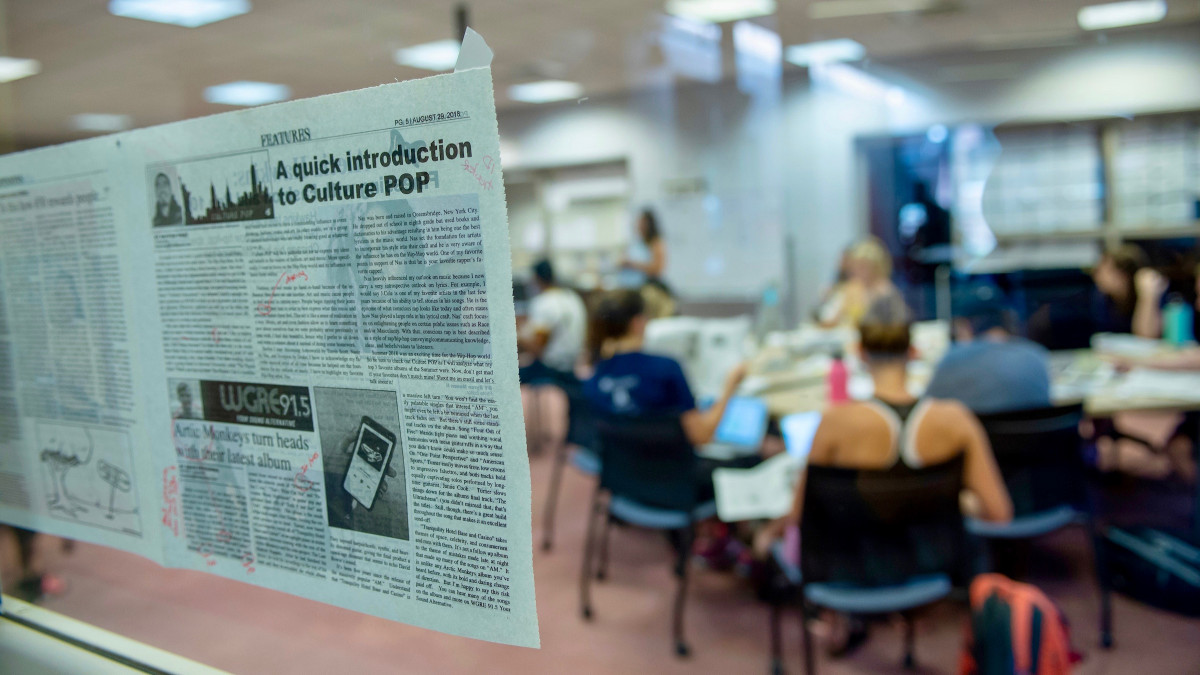 Practitioner or consumer?
Practitioner or consumer? The Storytellers
The Storytellers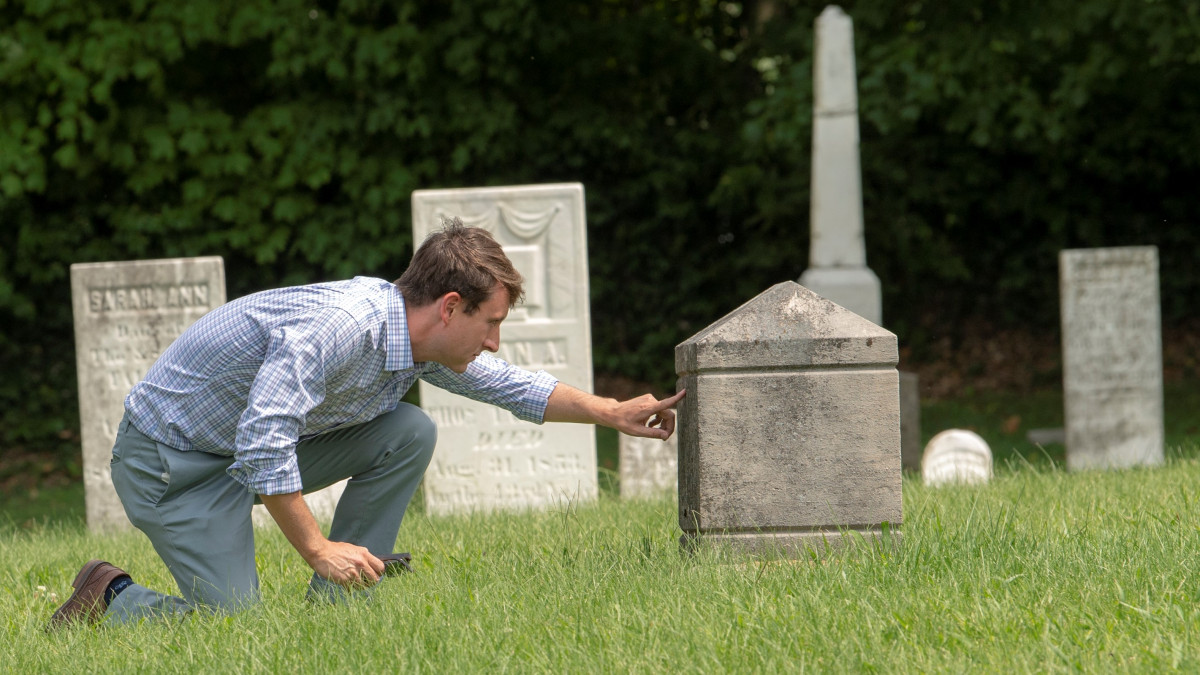 Hidden legacy: Genealogical search strengthens alum's bond to DePauw
Hidden legacy: Genealogical search strengthens alum's bond to DePauw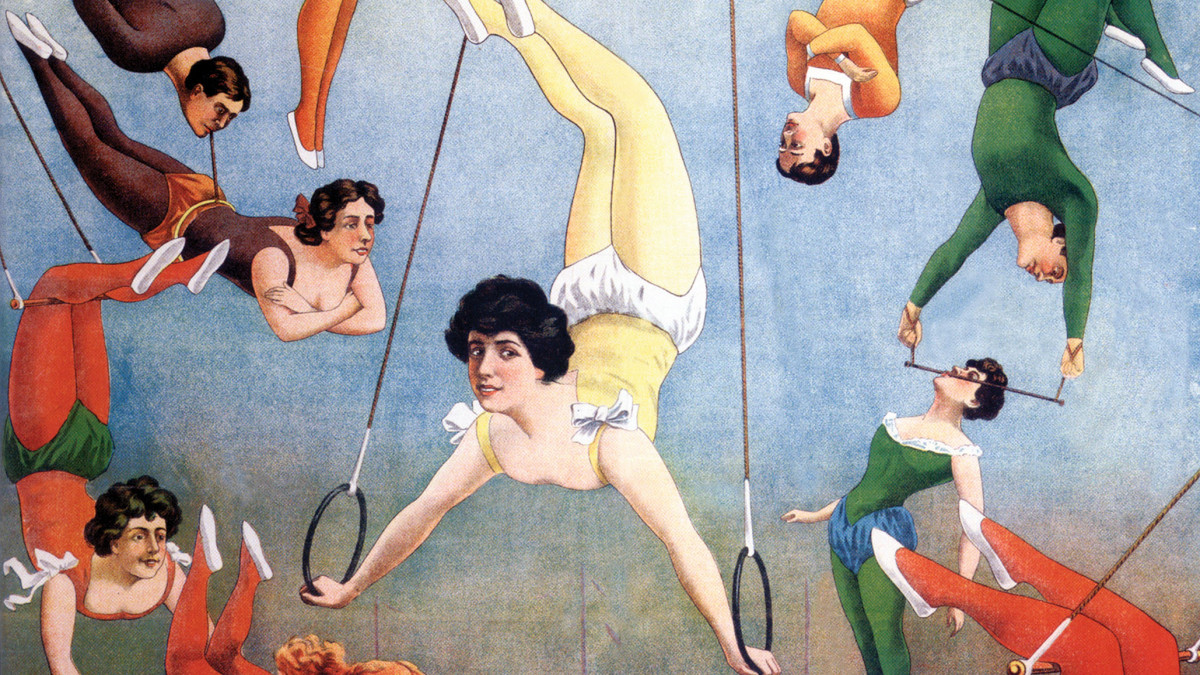 The High-Flyin’ Class of ’92
The High-Flyin’ Class of ’92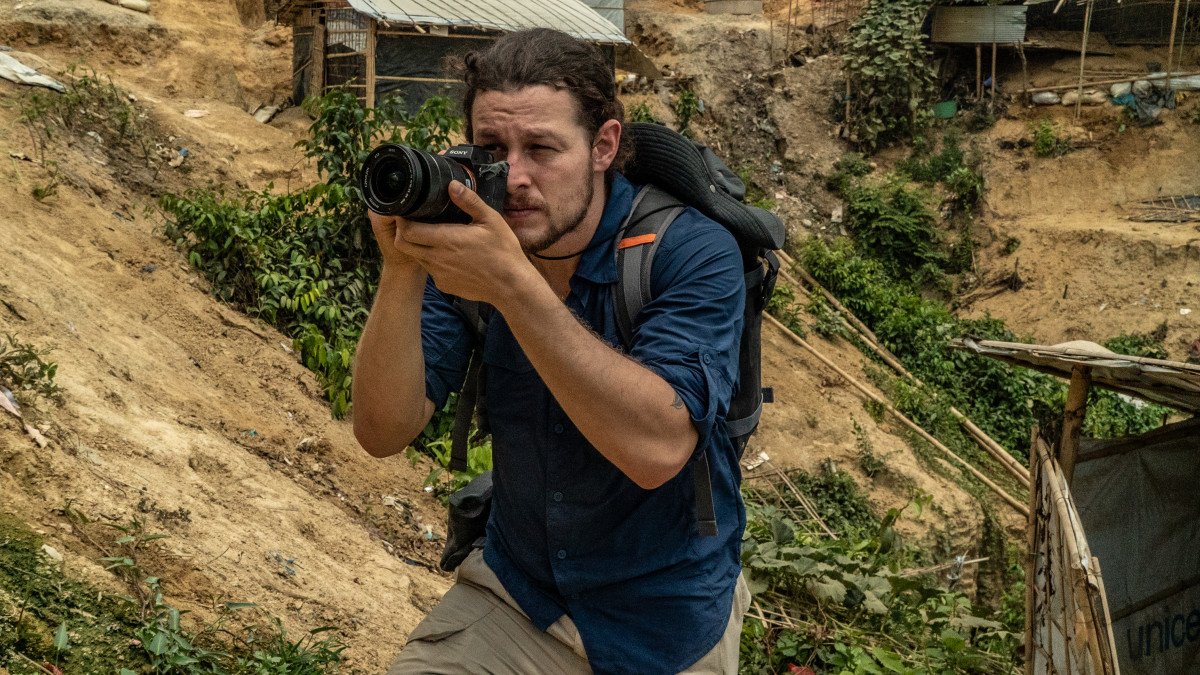 This stuff sticks onto your person
This stuff sticks onto your person
DePauw Stories
A GATHERING PLACE FOR STORYTELLING ABOUT DEPAUW UNIVERSITY
Browse other stories
-
Athletics
-
Women's Tennis - DePauw Advances to NCAC Semifinals with 4-0 Win over Wooster
-
Men's Lacrosse - Tigers Fall to Wittenberg
-
Baseball - DePauw Tops Rose-Hulman in Home Finale
More Athletics
-
-
News
-
Little 5 makes big splash through philanthropy and service
-
Greencastle Celebrates National Main Street Day with Small Business Breakfast, New Program Launch, and Spring Pitch Competition
-
Hirotsugu "Chuck" Iikubo ’57 remembered as thoughtful leader, advocate for international goodwill
More News
-
-
People & Profiles
-
11 alums make list of influential Hoosiers
-
DePauw welcomes Dr. Manal Shalaby as Fulbright Scholar-in-Residence
-
DePauw Names New Vice President for Communications and Strategy and Chief of Staff
More People & Profiles
-
-
Have a story idea?
Whether we are writing about the intellectual challenge of our classrooms, a campus life that builds leadership, incredible faculty achievements or the seemingly endless stories of alumni success, we think DePauw has some fun stories to tell.
-
Communications & Marketing
101 E. Seminary St.
Greencastle, IN, 46135-0037
communicate@depauw.eduNews and Media
-
News media: For help with a story, contact:
Bob Weaver, Senior Director of Communications.
bobweaver@depauw.edu.